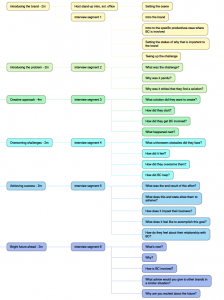— May 21, 2018

Are you being approached with a contract-to-hire opportunity? Don’t dismiss it outright. Though you might be uncertain about how this type of employment will work out, there are potential benefits for tech talent who embrace contract-to-hire work as part of their careers. Before you make a decision, either way, we recommend that you take a look at the contract-to-hire pros and cons.
Try Before You Buy
Contract-to-hire employment is treated as a trial run. Your job performance and cultural fit are evaluated before you’re made a permanent employee or the contract concludes. In that time, the evaluation doesn’t have to be one-sided.
Company research and interview questions help to spot obvious compatibilities with projects and work culture. However, the first-hand experience of a contract-to-hire position offers a more nuanced perspective. You can learn if the atmosphere and team dynamics are the right fit, and if they are, you’ve got your foot in the door to make the case for your current achievements.
Be Visible to Management
Due to the nature of these contract IT positions, companies are going to have their eyes on you like a hawk. This can be a pro and a con, depending on whether you’re a glass-half-full or half-empty kind of person:
- On the positive side, your achievements are less likely to go unnoticed. Decision-makers will be watching for reasons to give you a thumbs up and keep you around on a permanent basis.
- On the negative side, you might feel like a bug under a microscope. However, if you are performing at your best and this is the right position for you, you can use this to your advantage.
Enjoy More Autonomy
Since contract-to-hire jobs are meant to test your technical skills as much as any interpersonal skills or cultural fit, your work will be a bit more independent. After the initial onboarding, you’re more likely to take the reins solo. For more Type A professionals, this is an ideal situation thanks to the increased autonomy and the opportunity to put their own processes and problem-solving into effect. However, for those who are hoping for more guidance and training on the job, these types of contract IT positions offer more challenges.
Deal with More Ambiguous Work Situations
One of the challenges of contract-to-hire positions is that even if you are delivering results, extenuating circumstances might get in the way. A change in project priorities or a slowdown in company growth is outside of your control. However, there are ways to ensure that even if the unpredictable happens, you overcome obstacles to your career goals.
For example, if you’re working with top tech recruiters, they can use their relationships within a business to track ongoing situations and help you pivot if any radical shifts come out of left field. In those cases, they can even help in finding IT contract jobs after your current role so the transition from one position to the next is seamless.
A Final Thought on Contract-to-Hire Pros and Cons
There is no one employment situation that is going to have universal appeal. Some candidates prefer flexibility and novelty on the job, while others are seeking out more permanence. Ultimately, contract IT positions are meant to be a gateway, helping to foster a relationship that blooms into a longer-term position.
Business & Finance Articles on Business 2 Community
(87)








